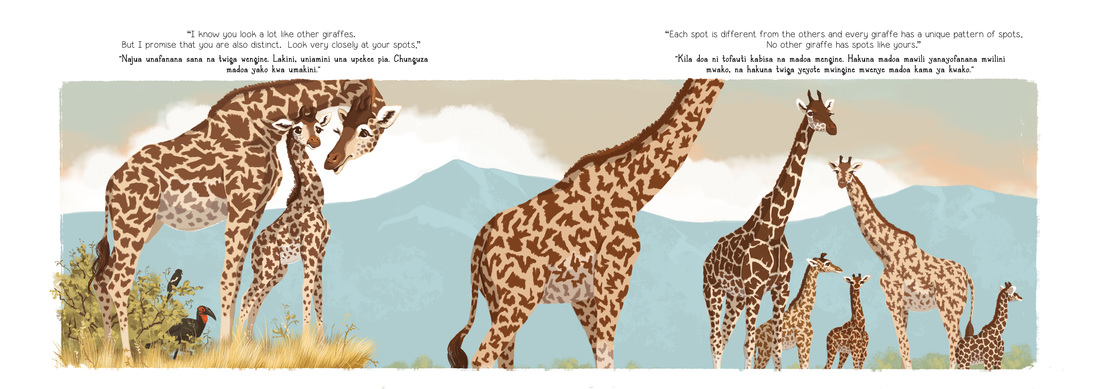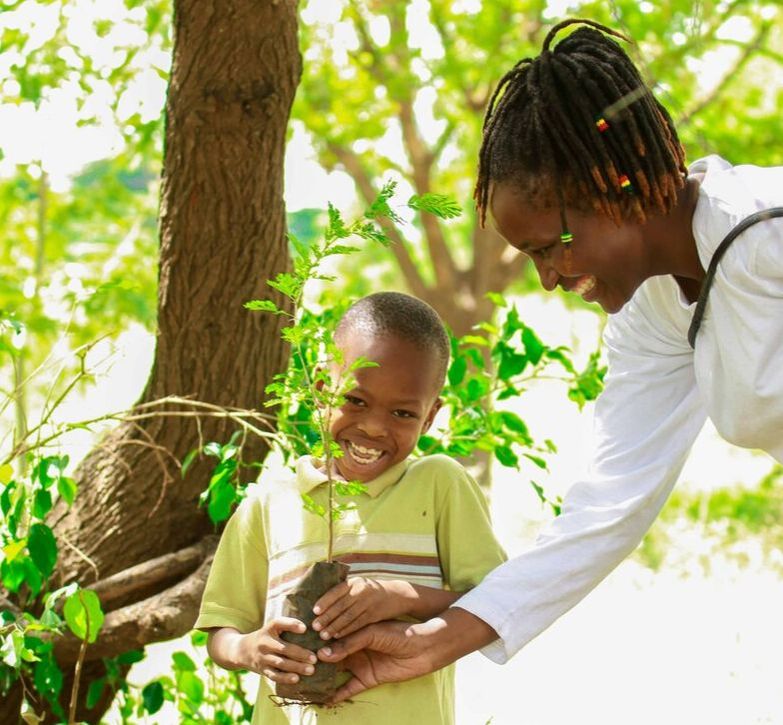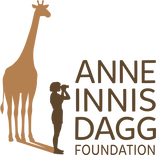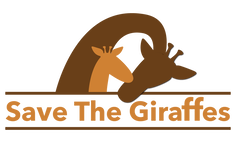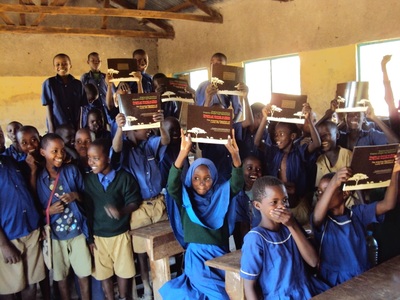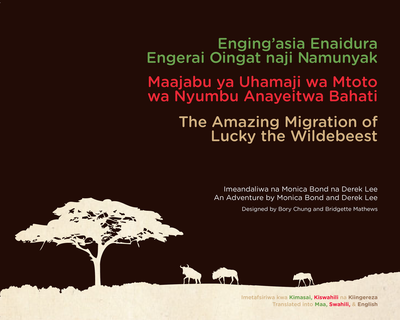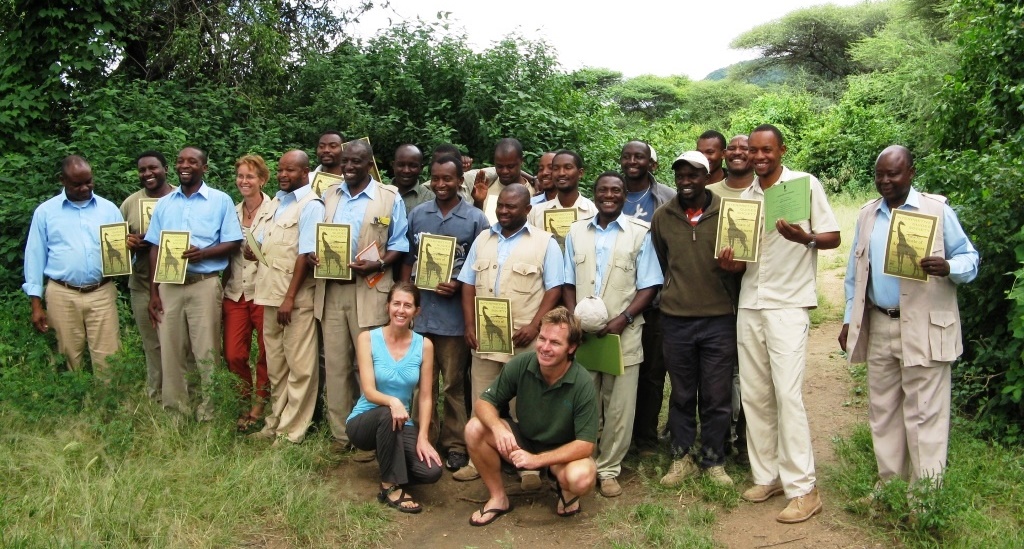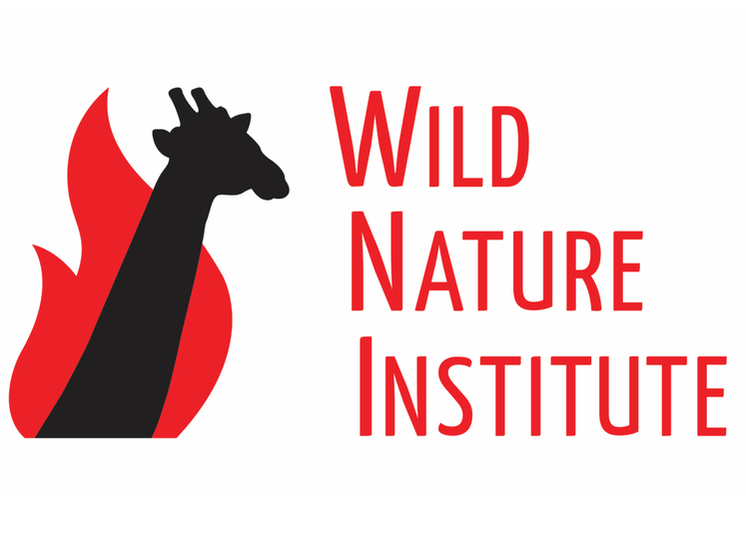Environmental Education for Community-Based Biodiversity Protection
Giraffe-Themed Environmental Education
Juma the Giraffe is part of an ongoing series of children’s educational materials produced by the Wild Nature Institute that teach ecological and social lessons, build national pride in Tanzanian wildlife, and motivate children to learn about their natural world. Juma the Giraffe is a heartwarming story about how every individual is unique and special, both on the outside and on the inside.
Juma the Giraffe is part of an ongoing series of children’s educational materials produced by the Wild Nature Institute that teach ecological and social lessons, build national pride in Tanzanian wildlife, and motivate children to learn about their natural world. Juma the Giraffe is a heartwarming story about how every individual is unique and special, both on the outside and on the inside.
Together with our partners, the Wild Nature Institute developed a variety of giraffe-themed educational materials for students and teachers. We are reaching primary and secondary school children aged 4 to 16 throughout Tanzania. We are distributing Juma the Giraffe and an activity book to each primary school child, as well as an accompanying Juma poster for the classroom, along with lesson plans and group activities for teachers to include in their science curriculum. Our partners have developed a poster highlighting the wonderfully weird physical features of giraffe, and we have created an accompanying lesson plan for secondary school children. We are holding workshops for teachers to discuss how they can best teach the concepts in the books and poster, and to provide us with feedback on what more we can do to provide high-quality, culturally relevant educational materials.
Celebrating Africa's Giants: Environmental Education for Conservation of Giraffes, Elephants, and Rhinoceros
Giraffes, elephants, and rhinoceros are Africa’s giants, majestically roaming across savanna landscapes and awing safari-goers and zoo visitors around the world. These largest of land mammals play critical ecological roles where they live, but they are endangered due to conflicts with humans. Successful protection of Africa’s giants requires support from Africans living alongside giraffes, elephants, and rhinoceros, as well as people around the world who care about the survival of these species and their habitats. Our team of conservation scientists, educators, illustrators, and designers develop and distribute innovative, culturally relevant Environmental Education materials. Our children's books, posters, activities, and lesson plans are for children, their parents, and educators in Tanzania, America, and around the world.
Giraffes, elephants, and rhinoceros are Africa’s giants, majestically roaming across savanna landscapes and awing safari-goers and zoo visitors around the world. These largest of land mammals play critical ecological roles where they live, but they are endangered due to conflicts with humans. Successful protection of Africa’s giants requires support from Africans living alongside giraffes, elephants, and rhinoceros, as well as people around the world who care about the survival of these species and their habitats. Our team of conservation scientists, educators, illustrators, and designers develop and distribute innovative, culturally relevant Environmental Education materials. Our children's books, posters, activities, and lesson plans are for children, their parents, and educators in Tanzania, America, and around the world.
Our education partners (click to visit their sites)
The Amazing Migration of Lucky the Wildebeest
We produced a multi-language children's book to educate about the importance of the Northern Plains migration corridor and the benefits of wildlife-based eco-tourism. These books are locally printed in Tanzania and distributed to schools and homes throughout the corridor as part of a large-scale environmental education campaign to mobilize the communities for conservation. This is the only children's book written in the language of the Masai people of northern Tanzania.
We produced a multi-language children's book to educate about the importance of the Northern Plains migration corridor and the benefits of wildlife-based eco-tourism. These books are locally printed in Tanzania and distributed to schools and homes throughout the corridor as part of a large-scale environmental education campaign to mobilize the communities for conservation. This is the only children's book written in the language of the Masai people of northern Tanzania.
The story of Lucky the Wildebeest teaches ecological lessons about the wild animals that share their homeland, and how those animals can be an economic benefit through ecotourism. The story also promotes literacy with all text side-by-side in Masai, English, and Swahili, the national language of Tanzania. You can purchase the book as a print or Kindle e-book, and your purchase also provides a book to a Masai child living in the Northern Plains. We also made Lucky a Video Book!
Village Environmental Forums
We are supporting community environmental forums in the villages of the Northern Plains. The environmental forums bring together women, youth, warriors, and elders to self-organize and create solutions to environmental issues in their communities. Dialogue and communication about natural resource issues creates a flow of information that has villagers discussing land-use plans, human-wildlife conflict reduction, resource ranger patrols, and drought and climate change mitigation. Now is an excellent opportunity to support community conservation in Tanzania. We are promoting tree planting, fuel-efficient stoves, anti-poaching, and ways to reduce human-wildlife conflict. The villages with environmental forums are also part of our Cinema Leo Environmental Education Roadshow network.
We are supporting community environmental forums in the villages of the Northern Plains. The environmental forums bring together women, youth, warriors, and elders to self-organize and create solutions to environmental issues in their communities. Dialogue and communication about natural resource issues creates a flow of information that has villagers discussing land-use plans, human-wildlife conflict reduction, resource ranger patrols, and drought and climate change mitigation. Now is an excellent opportunity to support community conservation in Tanzania. We are promoting tree planting, fuel-efficient stoves, anti-poaching, and ways to reduce human-wildlife conflict. The villages with environmental forums are also part of our Cinema Leo Environmental Education Roadshow network.
Sinema Leo Environmental Education Roadshow
To reach a broader audience and make environmental education more entertaining, we have turned our Lucky the Wildebeest and Juma the Giraffe children's books into video books. The conservation lessons in Juma and Lucky are now accessible to every Tanzanian in English, Swahili, and Masai. The video book movies are shown at rural villages around Tanzania as part of our Sinema Leo Environmental Education Roadshow. The roadshow is building pride in Tanzania's wildlife resources among an audience that has no access to national parks, very low literacy, and little access to outside entertainment. The explosive growth of smartphones and network among remote areas of Tanzania enables our conservation messages to reach into even the most isolated area.
To reach a broader audience and make environmental education more entertaining, we have turned our Lucky the Wildebeest and Juma the Giraffe children's books into video books. The conservation lessons in Juma and Lucky are now accessible to every Tanzanian in English, Swahili, and Masai. The video book movies are shown at rural villages around Tanzania as part of our Sinema Leo Environmental Education Roadshow. The roadshow is building pride in Tanzania's wildlife resources among an audience that has no access to national parks, very low literacy, and little access to outside entertainment. The explosive growth of smartphones and network among remote areas of Tanzania enables our conservation messages to reach into even the most isolated area.
Professional Development for Tanzanian Safari Guides
We are working with PAMS Foundation and the Interpretive Guides Society to create the first-ever training manuals for Tanzanian safari guides so they can develop a deeper knowledge of ecology, wildlife conservation, mammalogy, botany, and a host of other scientific subjects. The goal is to establish standards and certifications for Tanzanian guides, and ensure a high-quality experience for tourists in one of the most spectacularly wildlife-rich countries on the planet. Wild Nature Institute's involvement in creating the training manuals bridges science and public outreach, promote science-based conservation values in guides and their local communities, and spread a conservation message to tourists from across the globe. We also provide direct training and ongoing education about giraffes and other ungulates to guides and staff at the best safari lodges and companies in Tanzania.
We are working with PAMS Foundation and the Interpretive Guides Society to create the first-ever training manuals for Tanzanian safari guides so they can develop a deeper knowledge of ecology, wildlife conservation, mammalogy, botany, and a host of other scientific subjects. The goal is to establish standards and certifications for Tanzanian guides, and ensure a high-quality experience for tourists in one of the most spectacularly wildlife-rich countries on the planet. Wild Nature Institute's involvement in creating the training manuals bridges science and public outreach, promote science-based conservation values in guides and their local communities, and spread a conservation message to tourists from across the globe. We also provide direct training and ongoing education about giraffes and other ungulates to guides and staff at the best safari lodges and companies in Tanzania.
You can make a donation in any amount
to support our multi-dimensional environmental education efforts
to support our multi-dimensional environmental education efforts

